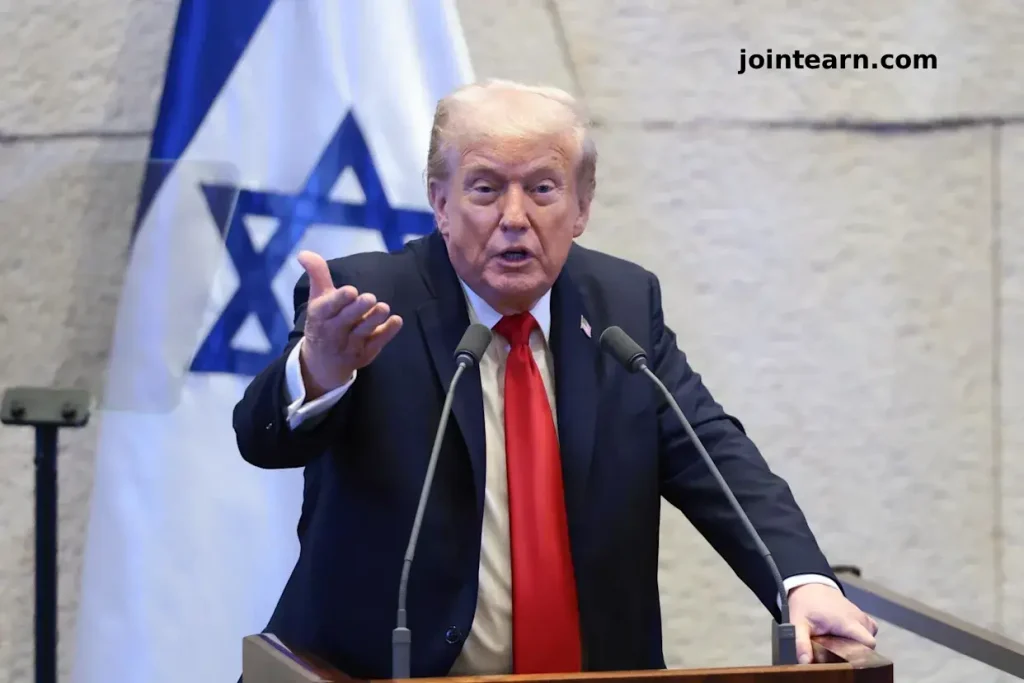
Washington, D.C. – Trump’s Middle East Peace Pitch to Iran Draws Skepticism in Tehran and Jerusalem
During a recent visit to Israel, President Donald Trump attempted to present himself as a peacemaker in the Middle East, proposing a historic reconciliation with Iran. Speaking to Israel’s parliament, the Knesset, Trump suggested that a peace deal could be reached if Tehran ended its support for militant proxies like Hamas and Hezbollah and recognized Israel’s right to exist.
“It would be great if we made a peace deal with them. Wouldn’t it be nice?” Trump said. “I think they want to.”
Reception in Jerusalem and Tehran
While Trump’s comments generated headlines, Israeli officials were cautious, aware of decades of hostilities and Iran’s persistent stance as an existential threat. The reception in Tehran was even colder. Iranian leaders rejected Trump’s invitation to attend a Sharm El-Sheikh summit designed to celebrate the Gaza ceasefire, citing past U.S. military actions, including the June bombing of nuclear facilities and the 2020 assassination of General Qasem Soleimani.
Iranian Foreign Minister Abbas Aragchi emphasized that while Iran supports diplomatic engagement, it cannot negotiate with a country that has “attacked the Iranian people and continues to threaten and sanction us.”
Challenges to Trump’s Diplomatic Vision
Experts suggest that Trump’s unorthodox approach, including his direct appeal to Iranian leaders, faces significant obstacles. The entrenched leadership under Supreme Leader Ayatollah Ali Khamenei, 86, remains committed to opposing U.S. policies and denying Israel’s legitimacy. Stanford University’s Abbas Milani notes that a meaningful shift in Iranian policy is unlikely as long as Khamenei and his hardline allies remain in power.
“One cannot realistically expect a sea change in Iranian policy with Mr. Khamenei at the helm,” Milani said. “The chances of reaching an agreement are nil.”
Potential Consequences and Regional Implications
While the proposal may have created some internal debate within Iran’s ruling elite, the more probable outcome is continued tension and a potential escalation of hostilities. Analysts warn that any missteps could trigger a cycle of retaliatory actions between Israel, Iran, and the United States.
Sina Toossi of the Center for International Policy highlighted that U.S. demands for Iranian concessions—such as recognizing Israel, limiting missile programs, and ending regional interventions—may provoke Iran to strengthen alliances with China, Russia, and neighboring states. This dynamic could increase the risk of conflict in the near term.
Conclusion
Trump’s attempt to broker peace between Israel and Iran illustrates the complexities of Middle East diplomacy, where historical grievances, entrenched leadership, and geopolitical rivalries make swift resolutions unlikely. Experts suggest that without nuanced diplomacy and a shift in Iran’s leadership approach, Trump’s proposals are more symbolic than actionable, serving to underscore ongoing tensions in the region.


Leave a Reply